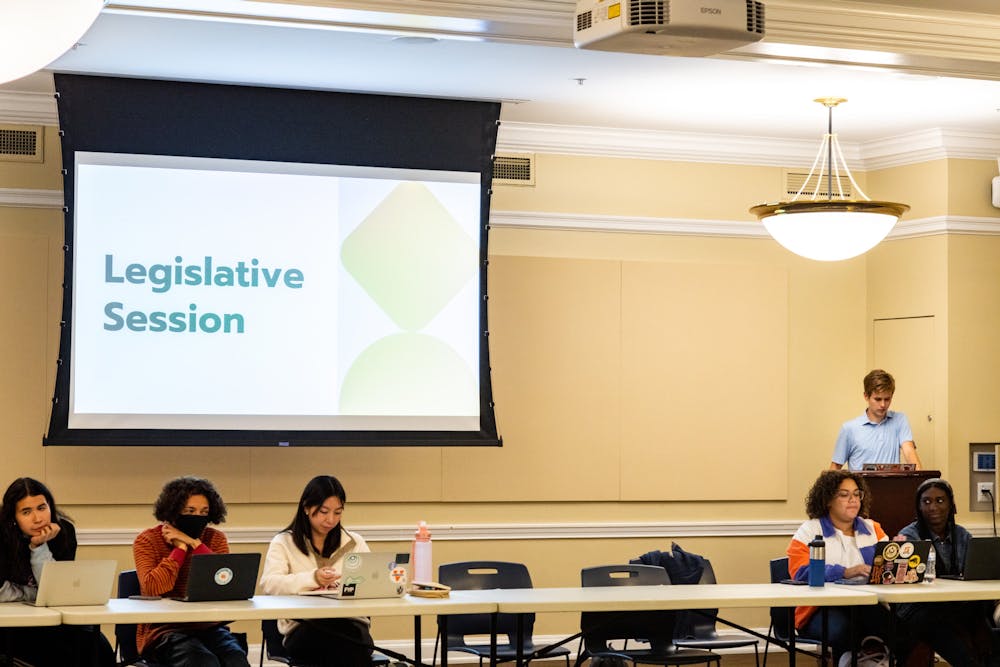The University loves to tout its commitment to student self-governance, a commitment which is reflected in the various student-led institutions around Grounds from the Honor Committee to the University Judiciary Committee to the Student Council. But while other student self-governance institutions, including the Committee and UJC, have independent endowments, Student Council has historically had no comparable independent source of funding. Recently, however, Student Council has announced the creation of a five million dollar endowment. This endowment has the potential to give the council unprecedented independence from the University in a way that will permit the council to actually practice student self-governance and to fully represent student interests.
Student Council is the preeminent student self-governance organization on Grounds. It represents and fulfills the interests of students in a variety of ways including textbook aid, free STI testing and a semesterly airbus service for students. To fund its various functions, Student Council primarily relies upon the newly increased $58 Student Activities Fee which accounts for roughly 95 percent of the Student Council’s annual budget. In this way, the SAF — which is collected by the University through tuition — is derived from University administration. This means that historically Student Council’s ability to adequately serve the student body has been entirely dependent on the administration. In response to a rise in inflation and an increase in requested funding from CIOs — both of which have led to difficulties in funding its services — the Student Council has recently announced the creation of a new five million dollar endowment.
Five million dollars — seemingly out of thin air — may sound too good to be true, but there is a tangible plan to raise this money. At the end of last semester, the University made the first of three yearly payments of $250,000 to Student Council to kickstart the endowment. Outside of payments from the University, Student Council will oversee fundraising efforts towards the ultimate goal of five million dollars. In light of this new funding, Student Council members introduced amendments that would grow the budget from $317,787 for the 2023-2024 school year to around $450,000 for future years — an increase of nearly 50 percent. We can expect this increased funding to continue and perhaps grow post-endowment. This new endowment will provide the operational independence and flexibility Student Council requires to ensure that it can always respond to the needs of the body it represents.
Financial independence is about more than just reducing University oversight — it offers a new level of stability. If managed properly, the endowment will allow the Student Council to respond to the ever dynamic needs of the student body without having to account for the financial state of the University. Prior to the creation of the endowment, funds outside of the SAF were entirely dependent on the financial position of the University. With this new funding secured, the Student Council will have its own source of funding to rely on outside of yearly SAF payments. The SAF can only be collected and allocated in the short term whereas an endowment would provide a stable, long term source of funding. This new state of affairs will work to promote the long term financial health of the Student Council that is necessary to most effectively execute its purpose as a dynamic and responsive representative body.
In addition to long term financial stability, the endowment will also provide a degree of political stability. Historically, Student Council as a governing body has been jolted by the ups and downs of University administration. And this turbulence has continued to this day. For example, this past August, the University had to replace the dean of students and the vice president for student affairs. This meant that just weeks before the semester began, the Student Council was forced to reevaluate their strategies for dealing with administration.
More pertinently, since the new dean of students and vice president for student affairs were only appointed for the interim, it was unclear how committed these essential liaisons would be to long term projects at the University. Had the endowment existed back then, these concerns would have been mitigated with the security of independent funding derived from the endowment. In short, the independence provided by the endowment will insulate the Student Council from the politics and chaos of University administration and allow them to fully foreground the interests of students.
While independence and stability embody the radical potential of the endowment, there are also more tangible benefits. More than just adding weight to Student Council’s wallets, creation of this endowment throws into question the necessity of the Student Activities Fee. Currently, the SAF is something for which every University student must pay. The introduction of the endowment would relieve the need for the SAF and incentivize its removal. Additionally, the endowment, should Student Council expand it properly, can bring new opportunities to students who would not normally be involved in Student Council. These students could participate in advisory or management roles of such an endowment. This could not only ease the burden for student council representatives, but allow for more students to have a personal stake in the workings of Student Council, increasing general student buy-in
If the endowment is managed right, Student Council’s future will be designed by and for the students of the University. Student Council may have, for the first time ever, the ability to completely determine its own destiny and to more effectively fulfill the ever-dynamic needs of those it represents. The endowment presents a massive opportunity — one that deserves all of our attention.
Viet Huynh is an opinion columnist who writes about student self-governance for The Cavalier Daily. He can be reached at opinion@cavalierdaily.com.
The opinions expressed in this column are not necessarily those of The Cavalier Daily. Columns represent the views of the authors alone.







